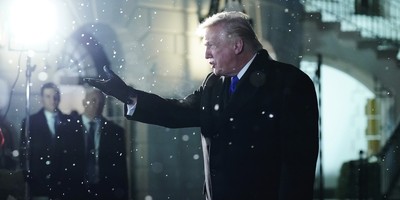The Supreme Court will hear arguments this week about prayers in public life, this latest deliberation revolving around a case from Greece, N.Y., and the recitation of prayers during town board meetings. The board used to begin each of its meetings with a moment of silence. When that moment of silence was replaced by spoken prayers, they turned out to be overwhelmingly Christian, and a suit was filed. Last year a federal appeals court ruled, according to The Washington Post, "...that such a 'steady drumbeat' of Christian invocations violates the Constitution's prohibition against government endorsement of religion."
The Court, not to mention the country, has long struggled with the First Amendment, which simultaneously prohibits Congress from establishing an official state religion, while protecting its "free exercise."
In one of its more precise cases about government and religion, a majority ruled in Lemon v. Kurtzman (1971) that any government connection to religion must have a "secular legislative purpose," must not have the "primary effect of either advancing or inhibiting religion" and must not result in an "excessive government entanglement" with religion.
In Greece, N.Y., in response to the court ruling, the town board made an attempt to solicit other faiths for invocations -- the local chairman of the Baha'i congregation concluded his prayer with "Allah-u-Abha," a Jewish prayer ended with "the songs of David, your servant" and a Wiccan priestess prayed to Athena and Apollo. Still, the prayers were mostly Christian.
The two women who filed suit, Susan Galloway (described by the Post as "uncomfortable with the sectarian prayers") and Linda Stephens, "an atheist," objected to sitting through the faith-based invocations. The women, represented by Americans United for Separation of Church and State, claim in their legal brief that prayers before legislative bodies are required to be nonsectarian, which those in Greece, N.Y., clearly were not.
According to the Post, Judge Guido Calabresi of the U.S. Court of Appeals for the 2nd Circuit conceded that the town board had made an effort to diversify their invocations, but that "By not reaching out to a more diverse group of prayer-givers or making clear that the prayers did not represent the town's beliefs, the judges found, 'the town's prayer practice must be viewed as an endorsement of a particular religious viewpoint.'"
Recommended
The desire by the faithful, especially Christians, to see their faith expressed in the public square has been a part of America's "civil religion" since the founding of the country. The idea that America is especially chosen by God for some purpose greater than those of any other nation is a type of idolatry that violates the very Scripture in which Christians claim to believe. Isaiah puts it succinctly as to how God views nations: "Before him all the nations are as nothing; they are regarded by him as worthless and less than nothing (Isaiah 40:17)." One must conclude from this passage that "all" includes the United States.
During the recent partial government shutdown, Senate Chaplain Barry C. Black received national attention when he used his opening prayer to chastise lawmakers, saying, "Enough is enough." Black asked God to "Cover our shame with the robe of your righteousness." It was fine oratory, but the political devils triumphed, and the shutdown continued until the president and congressional Democrats used their secular powers to prevail.
That is the point, isn't it? What do these public prayers accomplish? How does tossing in minority faiths advance a kingdom Christians believe their Leader taught is "not of this world"?
If individual members of the Greece, N.Y. town board, or any other legislative body, wish to pray silently to their God before their meetings, no law or court decision prohibits them from doing so. Why would God be more impressed and more likely to respond to a public prayer than to a private one? Indeed, Jesus commanded His followers: "But when you pray, go into your room, close the door and pray to your Father, who is unseen. Then your Father, who sees what is done in secret, will reward you." (Matthew 6:6).
That seems more definitive than any ruling by the Supreme Court.

























Join the conversation as a VIP Member